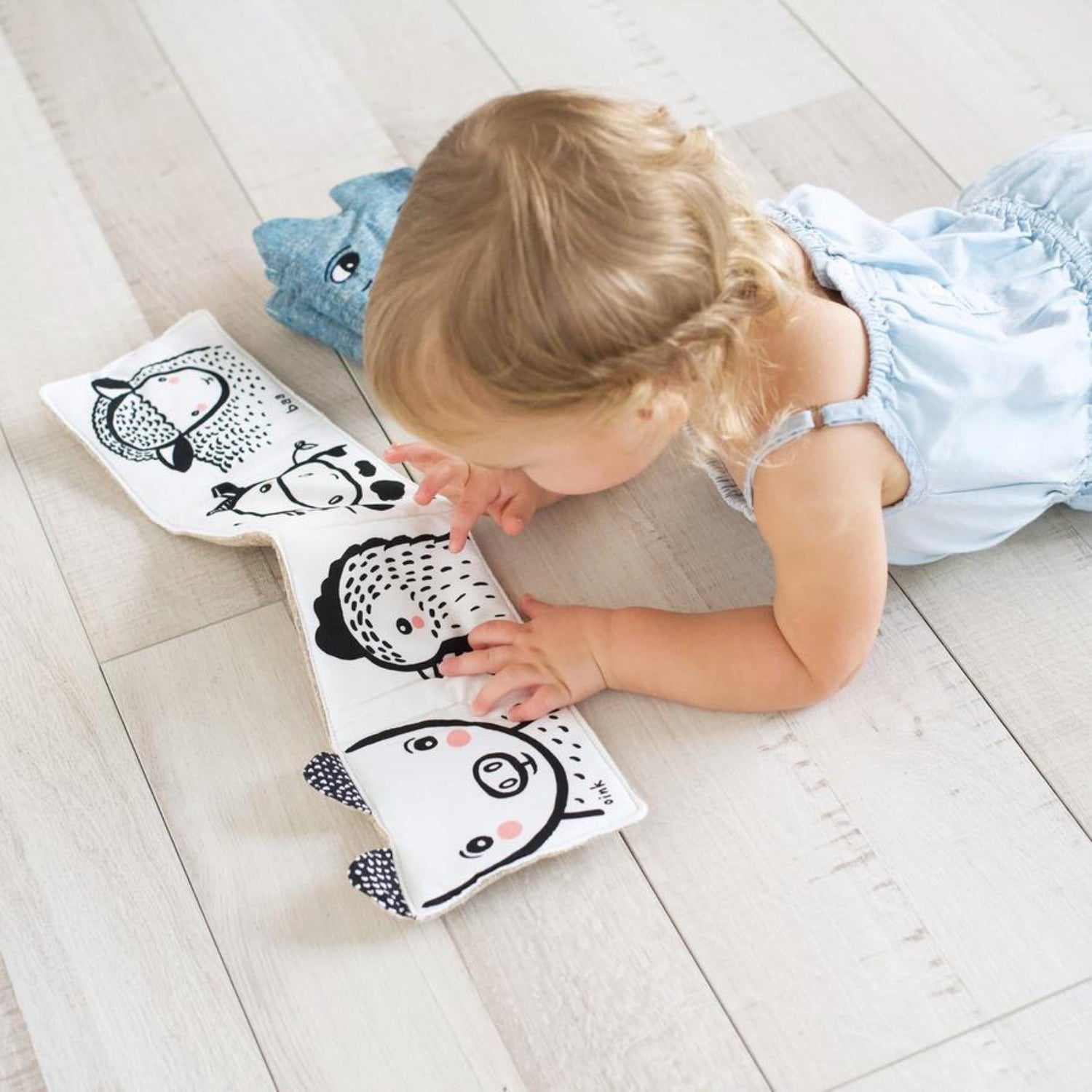Raising children is a topic that receives a lot of attention. We often hear many things in the environment about how to raise children, what to do and what not to do. We are taught by parents, neighbors, friends, various TV stars, articles and many other sources. However, raising little ones may not be so easy. Especially if it is the first child. Often, even simple daily challenges can become a real headache for parents. There are many tips on how to raise children, so you should not be afraid of this process. The main rules of raising a child depend only on your own acquired knowledge, read information, chosen methodology or intuition.s.
Information and training on parenting is widely available
Today, child rearing is widely discussed in various media: books, articles, magazines, online portals; in courses and trainings, during consultations with psychologists and other child specialists or even in communities. There is a lot of information, advice, and instruction on how to raise children, you just need to look around a bit.
Books about raising children
„How to raise a person, Five children's love languages, A highly sensitive child, Parenting without drama are just a few titles of books about children and child rearing that are recommended not only by experts, but also by parents. Books are useful in that you can find more and more varied information in them, they are perfect for those who like to read longer texts and go deeper.gilinti.
Articles, magazines, Internet spaces
Child rearing is also described in various articles, magazines and the Internet. These are often much shorter texts with more concise, concentrated information. This is a very suitable option for those who are in a hurry or who want to receive little, but extremely important information. In addition, the articles often deal with current affairs, so they can be really useful.
Training on raising children
There are many child development and upbringing experts, scientists, and professional lecturers in the world who are happy to share their accumulated experience in various trainings. Parenting is often discussed from at least a few perspectives, and the suggestions are well-researched and genuineworking.
Consultations of psychologists or other specialists
Raising children is extremely important. During upbringing, an attitude towards one or other things is formed, values are formed. Sometimes it can be difficult to overcome this task on your own. Psychologists and child development specialists can always help and answer your questions, give useful advice, tell you how you should behave or how to react to specific situations, explain howto approachto the child, how to interest him and what to do to make him listen.
Like-minded communities and other support
Another great way for those who want to get not theoretical but practical knowledge is various communities. Both on the Internet and in various cities or towns, there are various moms' and dads' clubs or gatherings where parents raising children gather. In addition to having fun, communities like these are usually great places to get advice from. The best part is that it shares real situations and practical advice from parents just like you..
Information, advice, training on the topic of raising children is really abundant and in various forms. However, if you have already tried many of the things mentioned above, or if they simply do not convince or inspire you, we invite you to take a look at raising children in different nations.
Raising children in different nations
Raising children does not have to be based on the experience of one nation. It is probably obvious that with so many religions, faiths, beliefs, attitudes, opinions, habits and customs in the world, there are also many different ways of parenting. Different nations develop specific principles of upbringing that are unique to that country or nation. If in some countries the child's freedom is extremely important, in others the child's employment..
Principles of raising Jewish children
It is joked that raising children according to the Jewish principle can raise geniuses and millionaires. Jews strive to cultivate a self-confident, versatile, strong and intelligent personality who is not only flexible, but also able to make decisions. Parents of this nation never divide their children and love and pamper them equally. Although the goal is to create as much freedom as possible for a maturing person, strict discipline still applies. Proper behavior of parents is also very important for proper education of children. Jews always keep their promises to their children, fulfill their duties. However, individuality occupies, perhaps, the most important place in Jewish education. In addition, the parents of the children of this nation are extremely devoted, loving and unconditionally satisfied with each child. They will never say that their child is bad or bad, they will always praise their children, and when they do something really bad, they will gently ask why such a good child did such a stupid thing. Although Jews give their children a lot of freedom, they also teach them to take full responsibility for their actions. Parents themselves do this too..
Raising children according to the Japanese
Japanese child rearing can be divided into three major stages. Children up to the age of 5 are raised here like kings. They are allowed absolutely everything. They are pampered, they are allowed to do whatever they want, but as soon as their 5th birthday dawns, everything turns upside down. Children from the age of 5 to about 15 are brought up extremely strictly here. Some call this perioda slaveperiod. At this age, strict rules, obligations and responsibilities are assigned to the child. From about the age of 15, a child is treated like an adult. A child of this age and older already knows his obligations and strictly obeys the rules. It is interesting that since ancient times, the Japanese family model is a father, mother and two children. Here, the eldest child is always distinguished from the others, he is considered the heir to the throne. An older child has more rights, but also more responsibilities. It is interesting that the difference between children is captured even by the language in the Japanese language, there are simply no wordsių brotherandsister, they have words meaningolder brother,younger brother, older sisterandyounger sister. In addition, the upbringing of girls and boys is very different here, boys are raised with the intention of turning them into the head of the family, who aspires to the heights of education and work, while girls are raised as future housewives and child rearers.s.
Raising children according to the Danes
You may have heard that the Danes are considered to be one of the happiest people. Such an attitude towards life and the world in general begins to be formed in childhood. Interestingly, Danish education begins with play, so it is not surprising that this country is the leader in the production of indoor and outdoor games. There is probably no child who has not put together Lego blocks from the Danish toy giant. If you delve into Scandinavian fairy tales, films, books, you will probably notice one huge difference from the European ones.ia happily ever after. It is believed that talking about real experiences, even extremely unpleasant ones, develops authentic citizens who learn to overcome various difficulties more easily. Another thing that makes Danes grow up happier is the realistic optimism instilled from childhood. Children brought up in this way will be able to see the advantages even in the most unpleasant situations. Empathy is another thing that children in Denmark are taught very early. Compassion, openness, emotional literacy help children to grow without fear of appearing vulnerable, to understand not only their own, but also the emotions and needs of those around them. It has been twenty years since corporal punishment of children has been banned in Denmark. They focus not on whipping, but on discipline and comprehensive support for learning children..
How the French raise children?
Extremely polite, obedient and independent French children fascinate parents of many nations. The French discovered what to do and how to raise a child to be independent, obedient and polite. First of all, children are taught very early that parents are the absolute authority. The rules set by them cannot be broken, and the spoken word is always the last. Parents do not consult with their children here, do not listen to their opinions, do not apply reservations. Although at first glance such parents should be extremely strict, they are able to maintain a friendly tone and unconditional love. After having children, the French do not stop pursuing their careers, do not give up their hobbies and do not abandon their friends and relatives. The birth of children does not close them at home, does not limit them. It is interesting that French women, contrary to what we are used to, do not rush to the child as soon as he cries. They tend to wait and let him calm down on his own. This is how babies are taught independence. French children are taught good manners and etiquette very early. From a young age, they are seated at a common table and taught to use tools and behave nicely. In addition, they are taught to say hello and goodbye to everyone they meet..
No matter how many different parenting theories exist in the world, not all of them will necessarily work for every child. All children are different, their needs are not the same, so the same parenting practices will not always work for all children. However, while raising children, we should not forget that we will not raise them by discipline or punishment alone. In order for the child to grow up to be an excellent citizen, a lot of attention should also be paid to the development of social skills. Talk to your child, teach him by doing one of his favorite activities or find a common hobby.Puzzles and board games can be a great way to get to know each other and learn new things while spending time together.





